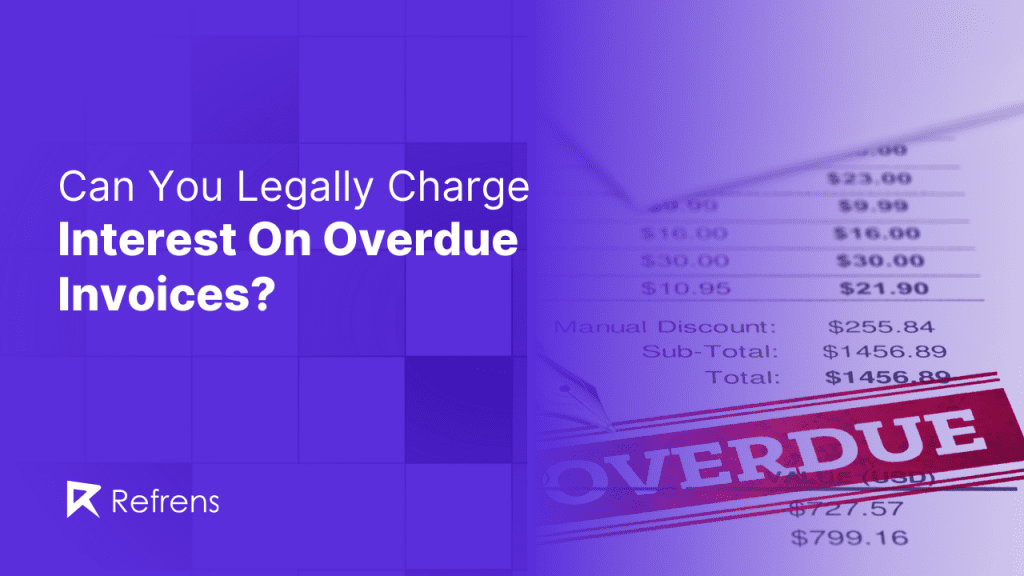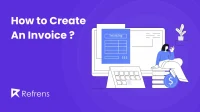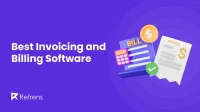Yes, you can legally charge interest on overdue invoices, but it’s important to understand your local and state laws, as they can vary. Ensure your contracts clearly state your payment terms, including interest rates on late payments. Strive for a balance between firmness and fairness, keeping in mind your ongoing client relationships.
As a freelancer or small business owner, you know managing finances is key, especially when your clients don’t pay on time. You might wonder, “Can I legally charge interest on these late payments?” This article is designed to explore not just the legalities but also the ethical and practical aspects of this issue, giving you actionable advice for managing those tricky situations.
Understanding Your Legal Framework
A. Draft Legally Sound Contracts
Here’s where you lay the foundation: written business contracts. They should be crystal clear about payment terms, including due dates and interest on late payments. Remember, a legally binding contract covers mutual consent, competent parties, lawful subject matter, and consideration. The clearer your contract, the better both parties understand their obligations and rights.
B. Navigate Local, International, and State-Specific Laws
Your business’s location deeply influences the legal backdrop for charging interest on overdue invoices. In some places, laws cap the interest you can charge. And if you’re dealing with international clients, it’s a whole different ball game with varied laws across countries. As you navigate these waters, remember that being informed about both local and international laws is crucial for your business’s financial well-being.
C. Legal Rights, Ethical Debt Collection, and Client Relationships
You have the right to pursue unpaid debts but remember, there’s an art to it. Tread the line between firmness and fairness carefully, considering your ongoing client relationship. Regular, transparent communication can make all the difference in fostering understanding and timely payments.
When and How Much Interest to Charge on Overdue Invoices?
A. Set a Standard Time Frame and Interest Rate
Typically, interest on overdue invoices kicks in after a set period, like 30 days past the due date. This approach gives your clients a fair window and sets clear expectations. As for the rate, it’s a balancing act between being fair to your clients and getting compensated for delayed payments. A common range is between 2% to 5% per month, but keep an eye on those legal limits and state-specific regulations.
B. Calculate Interest on Overdue Invoices
Here’s a simple formula: Interest = Principal Amount x Interest Rate x (Number of Overdue Days / 365).
For example, if an invoice of $1,000 is 30 days overdue at an 8% annual interest rate, the interest would be around $6.58. For larger balances or more complex calculations, consider using invoicing software to streamline the process. You can also check out our detailed list of the best invoicing software to choose the one that fits your needs.
Communicating Interest Policies to Clients
A. Incorporate Interest Policies into Contracts and Invoices
Make sure your contracts and invoices are clear about the interest terms, including any state-specific limitations. For example, adding a line like, “Interest of X% per annum will be applied to invoices unpaid for over 30 days,” keeps everyone on the same page.
B. Keep In Mind Ethical Considerations and Client Relations While Charging Late Fees
Remember, late fees should encourage timely payments without being punitive. Consider each client’s situation and history before applying these fees. Sometimes, offering understanding in challenging times, like a personal loss, can build long-term loyalty and respect.
Alternatives to Charging Interest on Overdue Invoices
You might find a flat late fee simpler than calculating interest, but ensure it’s reasonable and clearly communicated. Payment plans can be a win-win, especially when clients face genuine financial hurdles. Additionally, consider proactive reminders and incentives for on-time payments to nurture a culture of promptness.
How to Avoid Late Payments?
Given its in your client’s hands to release timely payments, you still can make sure of a few things to hasten up the payments –
- Create clear invoices: Use invoicing templates or invoicing software to ensure your invoices communicate all the information clearly. Add payment details like bank details, QR codes, UPI IDs, etc to speed up the payment process. A confusing or incomplete invoice may discourage the client from clearing the invoice right away.
- Set clear payment terms: Make sure, all the payment terms, including the clauses of late payment fee, are clearly mentioned in the invoice. Create a section of ‘Terms & Conditions’ right below the Total Amount section.
- Send payment reminders: You can automate sending reminders to your clients through invoice reminder software to ensure they haven’t forgotten about you.
- Offer multiple payment methods: Provide multiple payment methods so that your client can easily process the payment via a method suitable for them.
- Offer early pay discounts: Nothing motivates people like discounts. Ideally, you can offer around 2% to 5% early pay discounts depending upon your relations with the client, invoiced amount, etc.
Conclusion
Managing overdue invoices involves more than just understanding legalities; it’s about maintaining trust and respect in every professional relationship. By being informed, transparent, and empathetic, you can navigate these challenges effectively.
Adopting a personalized approach based on each client’s specific situation can strengthen relationships and smooth out payment issues. Leverage technology like invoicing software for efficiency and accuracy in managing overdue invoices.
Staying legally compliant and up-to-date with industry practices, including state-specific regulations, is vital. If you’re setting interest rates or drafting contracts, a conversation with a legal professional can provide valuable peace of mind.
A. Final Thoughts
Charging interest or late fees is a legitimate practice, but it should be done with care. Striking the right balance between financial needs and customer relationships is key. By setting clear terms, adhering to legal requirements, and using effective communication and technology, you can manage overdue invoices more efficiently while upholding the integrity of your business and nurturing client relationships.
B. Remember, You’re Not Just Managing Transactions
It’s not just about the numbers. Every interaction, every invoice, and every late fee is a part of the story you and your client are writing together. It’s about building a narrative of trust, respect, and mutual understanding. So, when you send out that invoice or reminder, think of it as more than just a transaction; it’s a chapter in a longer journey with your clients.
C. Your Path Forward
As you move forward with your business, keep these principles in mind. Stay informed, be empathetic, and remember that your approach to managing finances goes a long way in defining the success of your business relationships. Charging interest or late fees on overdue invoices is a part of business, but how you handle late payments can set you apart as a professional who values not just profits, but people.


















